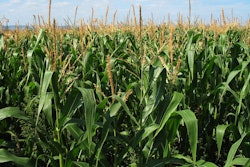
French and EU Wheat Production and Exports Continue To Grow
France will need to export 20.1 MMT of soft wheat this season after harvesting its second largest crop in history.
The country harvested 39.2 million tonnes of soft wheat this year, up 14.9% YoY.
French agri-consultant, Agritel, is estimating that more than half of France's wheat exports or an estimated 11.3 MMT, will need to be exported outside the EU.
At the total EU level, all-wheat exports during the 19/20 marketing year could reach 26 MMT. The estimated export total would be the highest of the past three years and would make the EU the largest global exporter after Russia.
What It Means forhe U.S. Farmer: Despite some of the dryness around parts of Germany and Poland both the EU and the French wheat crops have over performed this year despite the intense and at times record-breaking mid-summer heat waves. At FBN, we believe that an expanding European and French wheat export programs are a negative for the U.S. exports.
Statistics Canada: Both Canola and Wheat Production Decline
On Tuesday, Aug 28, Statistics Canada released their survey-based 2019/20 crop year production estimates.
Canadian farmers anticipate a decrease in production of canola and durum wheat in 2019.
The 2019/20 canola crop is estimated at 18.5 MMT, -9.3% YoY.
Canadian spring wheat is estimated at 25.1 MMT, +5% YoY.
Canadian total wheat production for the 19/20 crop year is estimated at 31.3 MMT, -3% YoY.
Timely rain helped to increase crop health in parts of Western Canada, while a cool, wet spring resulted in poor planting conditions and slow crop development in Eastern Canada.
FBN’s Take on What It Means for the U.S. Farmer: While the direction of these numbers were anticipated, we believe that the increase in Canadian spring wheat production is a negative for the U.S. farmer. The decline in Canadian canola production can be a positive for the northern U.S. based canola producer as tighter Canadian supplies can create local basis opportunities. Please contact your FBN farmer market advisor (FMA) for more information.
The risk of trading futures, hedging, and speculating can be substantial. FBN BR LLC (NFA ID: 0508695)










